How Much Do Digital Marketing Agencies Make?
Curious about the world of digital marketing agencies and the kind of money they make? You’ve come to the right place! In this guide, we’ll dive into the fascinating world of digital marketing agencies and explore just how much they can earn. So, buckle up, and let’s take a joyride through the exciting world of digital marketing agencies!
Now, I know what you might be thinking: “How much do digital marketing agencies make?” Well, my friend, that’s a million-dollar question! (Well, maybe not a literal million dollars, but you get the idea). The truth is, the earnings of digital marketing agencies can vary greatly from one agency to another. From small boutique agencies to large-scale firms, the potential for earnings in this industry is as diverse as the strategies they employ.
But fear not, we’re here to answer that burning question and shed some light on the earning potential of digital marketing agencies. So, if you’re ready to uncover the secrets of this thriving industry, let’s dive in and discover just how much these agencies can bring home. Trust me, it’s going to be an eye-opening journey!
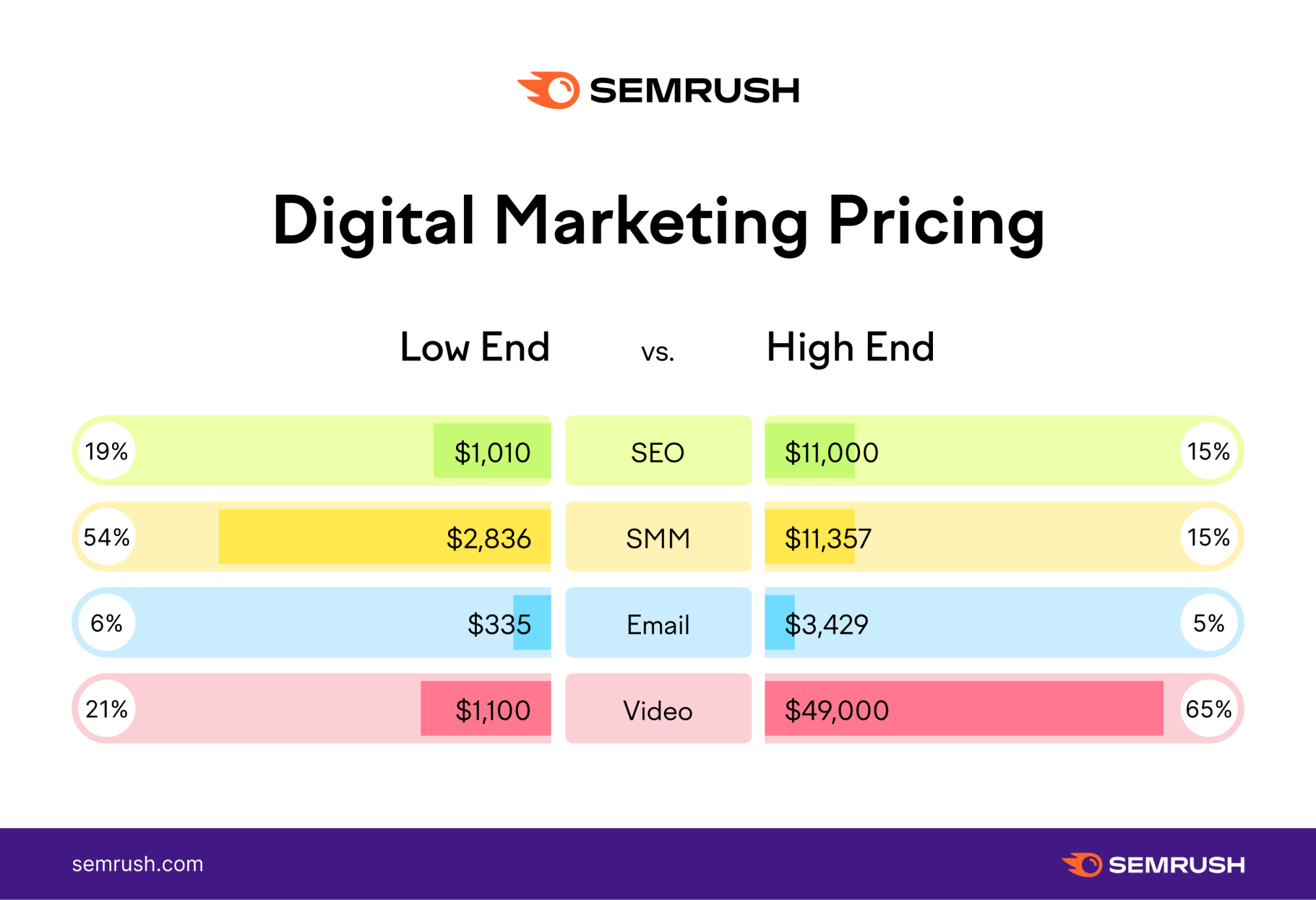
How Much Do Digital Marketing Agencies Make?
Digital marketing has become an integral part of business strategies in the digital age. As more companies recognize the importance of establishing and maintaining a strong online presence, the demand for digital marketing services has skyrocketed. This begs the question: how much do digital marketing agencies make? In this article, we will explore the factors that influence the earning potential of digital marketing agencies and provide insight into the average revenue they generate.
The Importance of Experience and Expertise
When it comes to determining the earning potential of a digital marketing agency, experience and expertise play a crucial role. Established agencies with a proven track record of delivering results are often able to command higher fees. Their experience allows them to bring a level of strategic thinking and creativity that can significantly impact their clients’ bottom line. Moreover, with expertise in various digital marketing channels such as search engine optimization (SEO), social media marketing, and pay-per-click (PPC) advertising, agencies can offer comprehensive solutions that cater to the diverse needs of their clients.
Newer agencies, on the other hand, may have to rely on lower pricing to attract clients and build their reputation. As they gain experience and showcase their capabilities, they can gradually increase their rates. It is essential for digital marketing agencies to continuously invest in their team’s professional development and stay updated on the latest industry trends to stay competitive and maintain their earning potential.
Overall, the level of experience and expertise a digital marketing agency possesses directly correlates with its earning potential. Established agencies with a strong reputation and a diverse portfolio of successful campaigns tend to earn more than their less experienced counterparts.
Factors Affecting Digital Marketing Agency Earnings
Several key factors influence the earning potential of digital marketing agencies. Understanding and optimizing these factors can be instrumental in boosting revenue:
Client Retention and Referrals:
The ability to retain clients and generate referrals is crucial for sustained business growth. Providing exceptional service, delivering measurable results, and building strong relationships with clients can increase the likelihood of repeat business and referrals. This not only enhances a digital marketing agency’s reputation but also contributes to its bottom line.
Effective Revenue Models:
Digital marketing agencies can adopt various revenue models, such as charging a fixed monthly retainer, project-based fees, or performance-based compensation. Choosing the right revenue model that aligns with the agency’s strengths and clients’ needs is essential for maximizing earnings.
Industry Specialization:
Specializing in a specific industry can give digital marketing agencies a competitive advantage. By understanding the unique challenges and trends in a particular industry, agencies can tailor their services to address the specific needs of clients within that industry. This specialization can result in higher fees and increased earning potential.
The Average Revenue of Digital Marketing Agencies
The average revenue of a digital marketing agency can vary significantly depending on its size, location, and client base. According to a survey of digital marketing agencies conducted by the Digital Marketing Institute, agencies with annual revenues below $1 million make up the majority of the market. However, larger agencies with higher revenues do exist.
Smaller agencies, with one to five employees, typically generate an average revenue of $500,000 to $1 million per year. Medium-sized agencies, with six to twenty employees, can earn between $1 million to $10 million annually. Larger agencies, with over twenty employees and established client bases, can generate revenues exceeding $10 million per year.
It is important to note that these figures are estimates and may vary based on numerous factors. Furthermore, the digital marketing industry is dynamic, and the earning potential of agencies can fluctuate as the market evolves.
Factors that Influence the Earning Potential of Digital Marketing Agencies
While the average revenue of digital marketing agencies provides a general idea of what agencies can earn, several key factors influence an agency’s earning potential. Understanding and optimizing these factors can be instrumental in boosting revenue and setting an agency apart from its competition. Let’s explore these factors further.
The Power of Differentiating Yourself
In a crowded digital marketing landscape, agencies must find ways to stand out and differentiate themselves from competitors. By offering unique solutions and positioning themselves as experts in specific areas, agencies can attract clients who value their specialized knowledge and skills. This can lead to higher fees and increased earning potential.
Additionally, investing in thought leadership initiatives such as publishing industry-specific content, speaking at conferences, and engaging with the community can help position an agency as a trusted authority. This can not only lead to more visibility and credibility but also increase the agency’s earning potential.
By establishing a unique value proposition and showcasing expertise, digital marketing agencies can elevate their earning potential and attract clients who are willing to pay a premium for their services.
Building Strategic Partnerships
Collaborating with complementary businesses can be a strategic move for digital marketing agencies aiming to increase their earning potential. By partnering with web developers, content creators, graphic designers, or other agencies specializing in related areas, an agency can offer comprehensive solutions to clients. This not only expands the range of services the agency can provide but also allows for potential revenue-sharing arrangements.
When agencies combine their strengths and offer bundled packages, they can stand out from competitors and provide more value to clients. Building strategic partnerships can lead to a broader client base, higher revenues, and a stronger position in the market.
Investing in Technology and Automation
Digital marketing agencies must stay ahead of the curve by embracing technology and automation. By leveraging tools and software that streamline processes, agencies can save time and increase efficiency. This, in turn, allows them to take on more clients, deliver results faster, and ultimately boost their earning potential.
Automation can also be applied to various aspects of digital marketing, such as social media scheduling, email marketing, and data analysis. By automating repetitive tasks, agencies can focus more on strategy and innovation, providing value-added services to clients. This can result in higher fees and increased earning potential.
Challenges and Opportunities in the Digital Marketing Agency Industry
The digital marketing agency industry presents both challenges and opportunities for those aiming to thrive and increase their earning potential. Let’s explore some of the key factors at play.
Ever-Evolving Digital Landscape
The constant evolution of the digital landscape presents both challenges and opportunities. On one hand, agencies must stay updated on the latest trends, algorithms, and digital marketing strategies to remain competitive. This requires continuous learning, research, and adaptation.
On the other hand, the ever-changing nature of the digital landscape allows agencies to position themselves as innovative leaders in the industry. By staying ahead of the curve and leveraging emerging technologies and strategies, agencies can attract clients who seek cutting-edge solutions. This can lead to higher fees and increased earning potential.
Increased Competition
As the demand for digital marketing services continues to rise, so does the competition within the industry. With new agencies entering the market regularly, established agencies must find ways to differentiate themselves and maintain their competitive edge.
While increased competition may put downward pressure on pricing, agencies can counter by showcasing their expertise, customer success stories, and unique value propositions. By demonstrating the tangible results they can deliver, agencies can justify higher fees and maintain their earning potential.
Shifting Client Expectations
Clients’ expectations are evolving rapidly as they become more knowledgeable about digital marketing. They now expect agencies to provide comprehensive solutions that go beyond basic marketing services. This includes offering strategic guidance, data analysis, and a deep understanding of their industry.
Agencies that can meet these evolving expectations and position themselves as trusted partners are more likely to command higher fees and enjoy sustained success. By continuously adapting to changing client needs, agencies can maintain their earning potential in an industry driven by client satisfaction and results.
In conclusion, the earning potential of digital marketing agencies is influenced by various factors such as experience, expertise, client retention, industry specialization, and the ability to differentiate themselves. While the average revenue of digital marketing agencies can vary, the industry offers numerous opportunities for agencies to increase their earning potential. By continuously investing in their skills, staying ahead of industry trends, building strategic partnerships, and embracing technology, digital marketing agencies can position themselves for success and maximize their revenue.
Key Takeaways: How Much Do Digital Marketing Agencies Make?
- Digital marketing agencies earn revenue by charging clients for their services, which can include website design, social media management, SEO, and more.
- The average annual revenue of a digital marketing agency can range from $500,000 to several million dollars, depending on the size and success of the agency.
- Digital marketing agencies can make money by offering retainer-based services, where clients pay a monthly fee for ongoing marketing support.
- Some digital marketing agencies also earn income through performance-based pricing models, where they are paid based on the results they achieve for their clients’ campaigns.
- It’s important for digital marketing agencies to effectively manage their expenses and overhead costs to ensure profitability.
Frequently Asked Questions
Welcome to our FAQ section where we answer some common questions related to how much digital marketing agencies make. Discover the financial aspects of this industry and gain insights into the earning potential of these agencies.
1. How do digital marketing agencies generate revenue?
Digital marketing agencies generate revenue through various avenues. One primary source of income is by charging clients for the services they provide. These services can include social media management, search engine optimization, content creation, and paid advertising campaigns. Agencies typically offer different packages or pricing models based on the scope of work and the specific needs of the client.
Another potential revenue stream for digital marketing agencies is affiliate marketing. They earn commissions by promoting products or services and driving traffic or sales through their marketing efforts. Additionally, some agencies may offer consulting services, training programs, or workshops, further diversifying their revenue streams.
2. What factors determine the income of a digital marketing agency?
The income of a digital marketing agency is influenced by several factors. One crucial factor is the size and reputation of the agency. Larger and well-established agencies often have higher fees and a larger client base, resulting in higher revenue. The agency’s expertise in various digital marketing strategies also plays a significant role. Agencies that specialize in high-demand areas or have a unique selling point may command higher prices.
The geographical location of the agency can also impact income. Agencies situated in major cities with a high demand for digital marketing services may charge more compared to those in smaller towns. The size and complexity of client projects, as well as the number of ongoing contracts, also contribute to the agency’s income potential.
3. Do digital marketing agencies have different pricing models?
Yes, digital marketing agencies often have different pricing models to accommodate diverse client needs. One common pricing model is the retainer model, where the client pays a fixed monthly fee for a set number of services or hours. This model allows clients to have ongoing support and ensures a steady income for the agency.
Hourly-based pricing is another model used by digital marketing agencies. In this model, the agency charges an hourly rate for the time spent on specific tasks or projects. This pricing model is often used for smaller projects or client requests that aren’t part of a comprehensive package.
4. Can digital marketing agencies make a substantial profit?
Yes, digital marketing agencies have the potential to make a substantial profit. However, the level of profit can vary depending on several factors, including the agency’s expenses, the number of clients, and the pricing structure. Agencies that effectively manage their costs, have efficient operations, and consistently attract and retain clients can generate significant profits.
It’s important to note that running a digital marketing agency involves overhead costs such as employee salaries, software subscriptions, marketing expenses, and office space. By carefully managing these expenses and consistently delivering value to their clients, digital marketing agencies can achieve profitability.
5. Are there any additional revenue opportunities for digital marketing agencies?
Absolutely! Digital marketing agencies can explore additional revenue opportunities to supplement their core services. One such opportunity is offering add-on services or upselling existing clients with specialized offerings. For example, an agency that primarily focuses on social media management may offer additional services like influencer marketing or email marketing campaigns.
Another revenue opportunity is creating and selling digital products or courses related to digital marketing. Agencies can package their knowledge and expertise into e-books, online courses, or webinars to generate passive income. Additionally, agencies can collaborate with complementary businesses and offer joint services or partnerships to expand their reach and revenue potential.
Digital Marketing Agency Revenue and Profit Margins | How Much Can You Make?
Summary
Digital marketing agencies can make a lot of money, but it depends on different factors such as the agency’s reputation, location, and client base. Some agencies can earn millions of dollars each year, while others may make less. The type of services offered, like SEO or social media management, can also impact the agency’s earnings. It’s important to note that starting a digital marketing agency requires hard work, expertise, and a good understanding of marketing strategies. However, with dedication and skills, it is possible for digital marketing agencies to be quite successful and profitable.


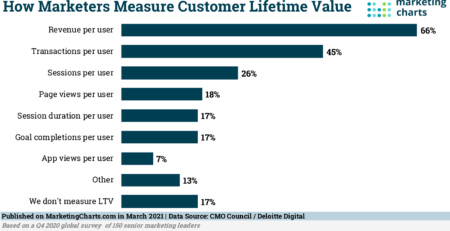

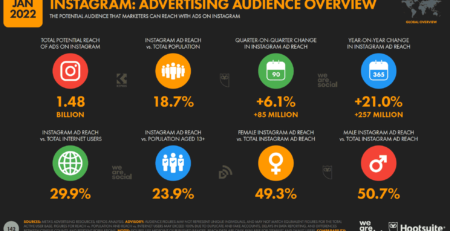

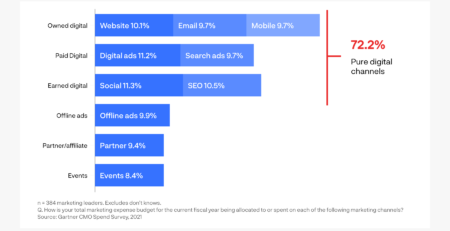


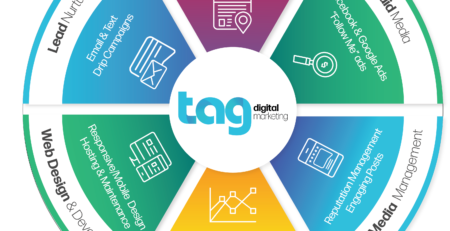
Leave a Reply